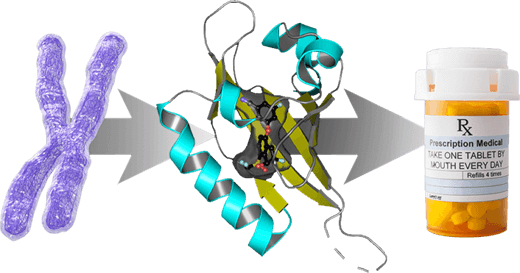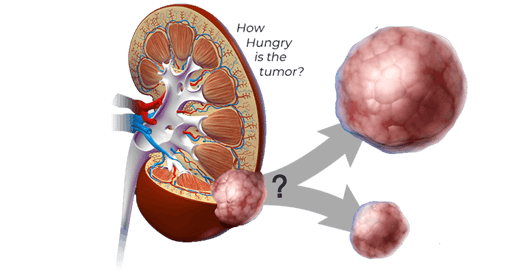- Established by the National Cancer Institute (NCI) in 1992, the SPORE program seeks to promote collaborative, interdisciplinary, translational cancer research
- Cornerstone of NCI Translational Research Program
- Recognizes programs of excellence with funding to advance scientific discoveries into treatments
- Across over 60 awards, one of only two that focus on kidney cancer, the other at Dana-Farber/Harvard Cancer Center.
UT Southwestern Kidney Cancer SPORE
2016
2022
James Brugarolas, M.D., Ph.D., and Payal Kapur, M.D.
$11.5 million

PROJECT 1
Building on the research success that culminated in the development and eventual FDA approval of a first-in-class HIF-2a inhibitor (Belzutifan) during the first cycle of SPORE funding, UT Southwestern researchers continue to leverage their expertise of HIF-2a to combat resistance mutations they identified and to develop novel radiology tests to monitor HIF-2a in patients.
Lead Investigators
- James Brugarolas, M.D., Ph.D.
(Project Co-Leader) - Xiankai Sun, Ph.D.
(Project Co-Leader)

PROJECT 2
Building upon discoveries of the In Vivo Metabolism Lab established in the previous SPORE cycle, Project 2 aims to develop innovative treatments exploiting glutamine addiction in renal cancer that bypass the limited efficacy of glutaminase inhibitors.
Lead Investigators
- Ralph J. DeBerardinis, M.D., Ph.D.
(Project Co-Leader) - Kevin Courtney, M.D., Ph.D.
(Project Co-Leader)

PROJECT 3 (Project 4)
Building on a state-of-the-art Translational Immunology Platform supported by the Pathology Core, Project 4 seeks to identify predictive biomarkers and develop next-generation immunotherapies, including a pembrolizumab-IL2 immunocytokine conjugate engineered to enhance efficacy and reduce toxicity, advancing thereby personalized therapy.
Lead Investigators
- Tao Yue, Ph.D. (Project Co-Leader)
- Payal Kapur, M.D. (Project Co-Leader)
Advanced Imaging Core
Having developed new radiology tests currently being evaluated in patients, and assisting with radiology interpretation, the Advanced Imaging Core is advancing the mission of the SPORE.
Data Analytics Core
By developing new technologies, such as Kidney Cancer Explorer, the data analytics core enables multidisciplinary research.
Pathology Core
Supporting the SPORE through the storage, annotation and distribution of patient samples and the creation of transplant and other animal models.

Developmental Research Program
Seed funding supporting kidney cancer projects with transformative potential.
Career Enhancement Program
Drawing new investigators to kidney cancer research.

PROJECT 2
Building upon discoveries of the In Vivo Metabolism Lab established in the previous SPORE cycle, Project 2 aims to develop innovative treatments exploiting glutamine addiction in renal cancer that bypass the limited efficacy of glutaminase inhibitors.
Lead Investigators
- Ralph J. DeBerardinis, M.D., Ph.D.
(Project Co-Leader) - Kevin Courtney, M.D., Ph.D.
(Project Co-Leader)

PROJECT 3 (Project 4)
Building on a state-of-the-art Translational Immunology Platform supported by the Pathology Core, Project 4 seeks to identify predictive biomarkers and develop next-generation immunotherapies, including a pembrolizumab-IL2 immunocytokine conjugate engineered to enhance efficacy and reduce toxicity, advancing thereby personalized therapy.
Lead Investigators
- Tao Yue, Ph.D. (Project Co-Leader)
- Payal Kapur, M.D. (Project Co-Leader)







